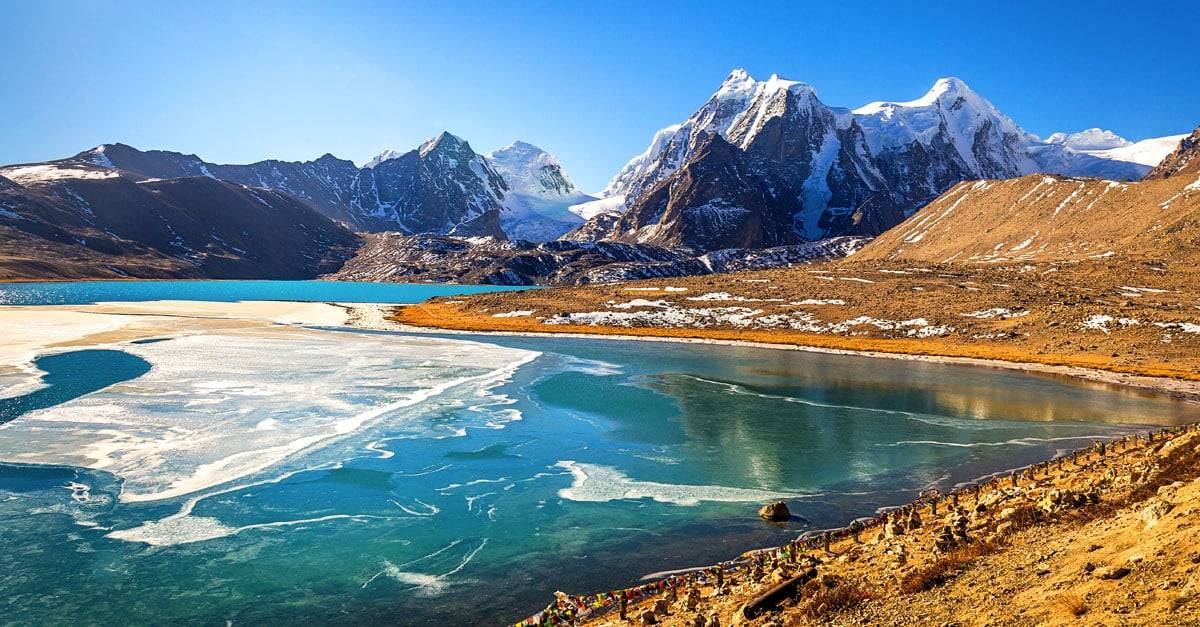The smallest and Youngest State in India
The state of Sikkim is located in the north of India. It borders Bhutan, Nepal, and Tibet. The smallest and youngest Indian state is unique for its biodiversity, forests, pastures, and subtropical climate. Sikkim is home to Kangchenjunga, the highest peak in India and the third highest on earth, and steep mountain slopes that make up most of its fragile ecosystem. Over the years, Sikkim has evolved into an environmentally conscious state. It also developed into a popular tourist destination. In 2003, it was the first state in India to officially introduce organic farming. This made it the “first fully organic state in the world”.

Ecological transformation as early as 2003
Sikkim is not only the destination that every traveller has on their bucket list, but also the first state in India to achieve complete sanitation and the only state in India where open rubbish disposal is non-existent. Further, Sikkim is expanding its forest areas as well as pasture areas. Sikkim is now the first state in the world to go completely organic. The state’s decision to introduce organic farming in 2003 has paid off in the long run. The reformed decision has resulted in healthier lives, higher soil fertility and fewer health complaints.

Sikkim as a model for pure organic cultivation
The “Sikkim Organic Mission,” or Sikkim’s “Organic Mission,” emerged from the resolution. It included training and awareness programmes to inform farmers and the population about the benefits of organic farming. It has also slowly reduced the import of chemical agricultural products such as artificial fertilisers. Sikkim was already designated an “organic state” in 2016. After that, the use of chemical pesticides was even banned. According to the British Guardian, anyone who does not follow the ban has to pay a fine of 100,000 rupees (almost 1250 Swiss Francs). If one does not follow the regulations, there is also the possibility of a prison sentence.
The conversion to organic farming, however, was not easy. 66,000 farmers received support from the state government and a security policy that will benefit them in the long run. Farmers were trained, and the situation was reviewed.
Your Wealth, Our Priority: Altoo's Consolidation Power, Secure Document Management, and Seamless Stakeholder Sharing for High Net Worth Individuals. Preview Platform.
In 2010, the Sikkim Organic Mission was launched to convert 75,000 hectares of land to organic practises. Under this mission, steps were taken to promote organic farming. It also facilitated the establishment of local organic outlets, education, and awareness of organic farming, which was seen as a more environmentally friendly farming method. In 2016, Sikkim was recognised by the World Book of Records in London as the “world’s first organic and crime-free state with the best governance”, making it into history. In 2018, the United Nations Fertiliser and Agriculture Organisation (FAO) gave Sikkim an award for its efforts to convert the state to fully organic agriculture.
As could be seen, farmers need a lot of government help in the first few years to compensate for crop losses and ensure their viability. Consumers also need to be involved and willing to spend more money on “less than perfect” products for organic farming to really work.










